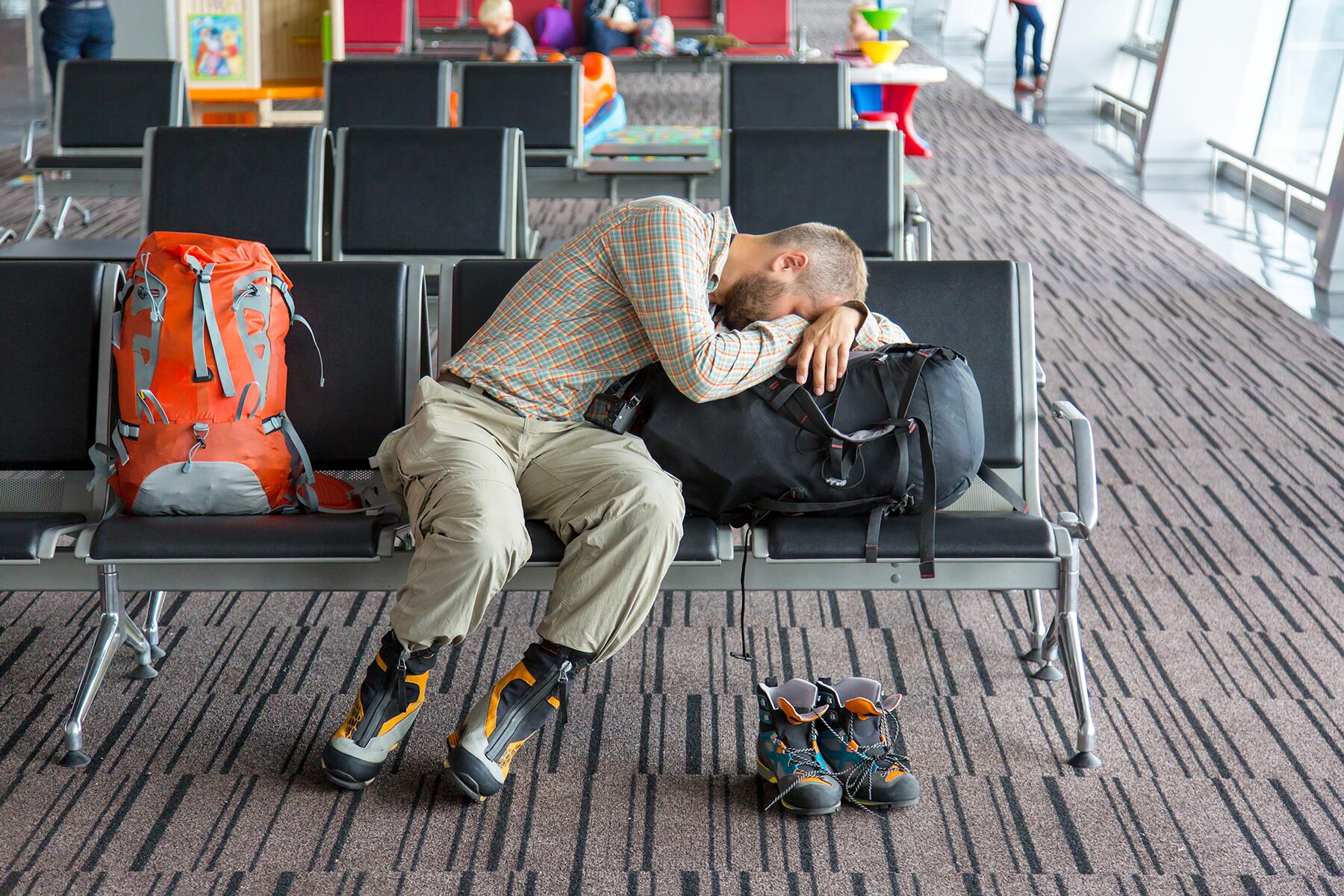Staffing shortages, flight delays, and inflation are major pain points for travelers right now. We tapped the experts who weigh in on how technology will play a bigger role for travelers in the months and years ahead.
On a recent stroll through Chicago O’Hare International Airport, the “Help Wanted” signs lining the kiosks and gift shops served as a reminder that while travel may be back, there are still major issues to contend with.
Despite the travel and hospitality sector driving U.S. job gains over recent months, an estimated 1.7 million hospitality jobs still need to be filled in the U.S., according to a recent report by the U.S. Labor Department. Between flight delays, staffing shortages, and airline horror stories that have been making headlines, we still have a way to go before reaching any semblance of pre-pandemic normalcy.
“During the pandemic, the uncertainty caused by changing restrictions boosted the demand for flexible bookings,” SVP of World Travel & Tourism Council (WTTC) Virginia Messina told me over email. “The sector continues to face staff shortages across many industries, which might cause delays or waits in the travelers’ journey, so it’s always good to plan ahead and allow extra time for your trip.”
Recommended Fodor’s Video
As jobs continue to be filled and the travel and hospitality workforce slowly trickles back, Messina says ongoing issues resulting from staffing shortages, compounded by flight and airport disruptions and cancellations, are part of the reality travelers will be facing as the industry works to catch up.
In the last year alone, airlines have seen a seismic meltdown to the tune of over a million mishandled bags, a nationwide ground stop caused by outdated equipment, and a holiday meltdown after Southwest Airlines was forced to cut 70% of its schedule and more than 16,700 flights as a result of bad weather and an outdated computer system brought everything to a halt.
Despite the hurdles, travel is booming at such an unprecedented rate that according to new data collected by the United Nation’s World Tourism Organization (UNWTO), more than 900 million people traveled internationally in 2022, and that figure is expected to rise exponentially in 2023.
Compare that to the more than 62 million travel and tourism jobs that were lost globally in 2020 according to the Economic Impact Reports by WTTC, it’s almost inevitable that if you’ve traveled anytime over the last year or so, you’ve come across an issue of your own along the way.
The Rise in Travelers Is Being Hindered by Staffing Shortages
“The appetite for travel is at its highest point since the pandemic, despite the economic headwinds we are experiencing,” Messina says. “Consumer sentiment to travel has come back strongly, albeit the unprecedented inflation.”
It’s not just the airlines that are struggling. Across much of the hotel sector, the U.S. Bureau of Labor Statistics reported hotel employment is down nearly 400,000 jobs since February 2020. According to the American Hotel & Lodging Association (AHLA), 97% of its members reported being short-staffed, and almost half reporting they were in critical condition.
“We’re at an inflection point, and it’s definitely an interesting time of transition where the hospitality industry is still trying to deliver the same level of service as 2019, but the biggest challenge is employment,” travel expert and Best-Selling Author Sarah Dandashy told me. “Many businesses in the hospitality industry either can’t find enough people to work or the training isn’t there. As a result, we are seeing a gap between what people are paying for and the value and level of service they’re receiving.”
How AI Might Help the Travel Industry
Dandashy says despite the struggles, the hospitality industry is working hard to find its post-pandemic footing, and change may soon be on the way thanks to emerging technology and AI.
“The biggest change is more digital options and offerings from apps to mobile options; hospitality businesses have really doubled down on those offerings,” Dandashy said. “AI has only improved over the years, so look for more texting services and other offerings being powered by AI. AI will certainly permeate multiple aspects of the industry, it’s just inevitable.”
According to Expedia Group’s 2023 Traveler Value Index, new tech-driven tools and features have not only helped alleviate some of the pain points for travelers but it’s also a way to help personalize and improve the travel experience.
“AI has enormous potential to help curate the traveler experience,” says Dave McNamee, a spokesperson for Expedia. “Our machine learning models evaluate more than 360,000 permutations of a page on just one of our brand sites to ensure that travelers receive the most relevant information. Also, AI will also be hugely beneficial to our chatbot capabilities. For example, our AI-powered Virtual Agent helps travelers get the support they need quickly and efficiently. Now actions like requesting a refund can be quickly and seamlessly done through the Virtual Agent.”
As more Online Travel Agents (OTAs) like Expedia and hotels lean into digitizing the guest experience via AI and chat-bots, Dutch boutique hotel brand citizenM has been ahead of the curve when it comes to using technology as a means of personalizing the guest experience.
“We want technology to serve two purposes. First, we must be able to deliver a very convenient user experience, whether that means checking in with our mobile app or an intuitive and low-click booking process. Second, it must be a conduit for personalization. We use it as a way to show individual recognition, particularly as an asset for our on-site teams. Adding that special touch to the guest experience makes all the difference,” said Chief Commercial Officer for citizenM Ernest Lee.
As emerging technologies like AI continue to evolve, Virginia Messina says it will ultimately come down to government regulators to ensure a better experience for travelers in the months and years ahead.
“During the pandemic, travel and tourism leapfrogged towards a more digital sector, and we saw many countries adopting digital solutions to improve traveler’s experience and provide a more seamless travel experience,” Messina said. “Governments should continue implementing smart digital technologies to ensure a full recovery of the sector and achieve an efficient revival of international travel.”





